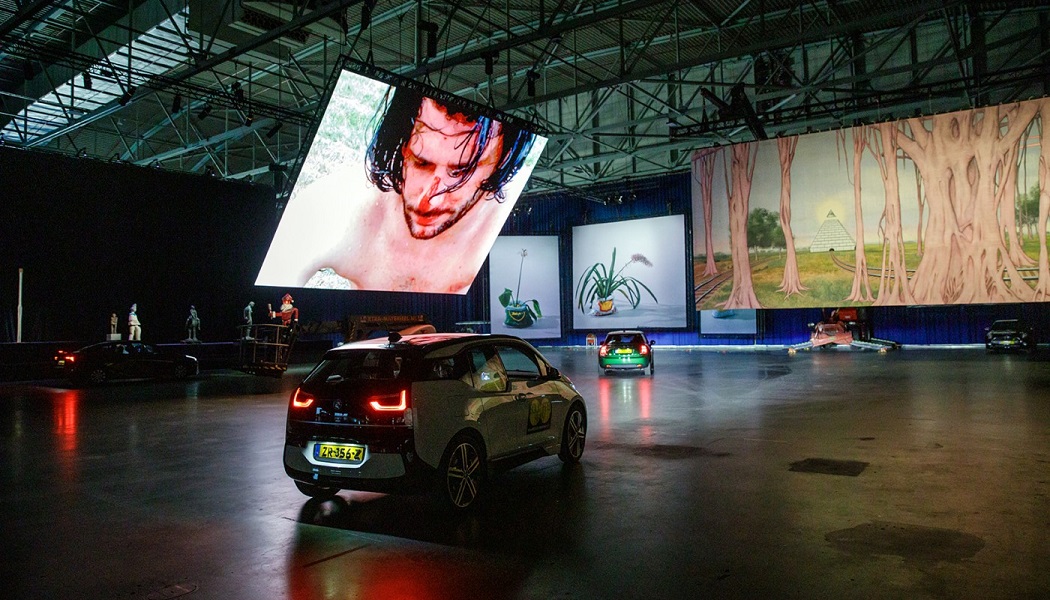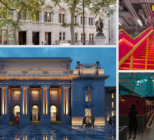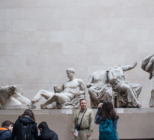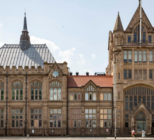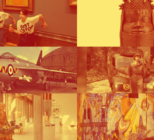January
Consistent with the cheer that surrounded life when we all had to get dressed and leave the house for work, the sector was at its playful best for the return of Museum Selfie Day as 2020 began. A firm favourite at M+H HQ remains this corker from the Isle of Man.
#MuseumSelfieDay
Our front of house team & the Giant Deer at the Manx Museum getting in on the action! ?#giantdeerselfie pic.twitter.com/CRHHVdmXdt— ManxNationalHeritage (@manxheritage) January 15, 2020
Both the Natural History Museum and Horniman Museum and Gardens laid out their plans to tackle the climate crisis in January, and National Lottery Heritage Fund partnered with the Museums + Heritage Awards for a first-of-its-kind sustainability prize.
Why National Lottery Heritage Fund wants to find the Sustainable Project of the Year
Continuing the green theme, National Trust unveiled a pledge to plant 20 million trees in its pursuit of ‘net zero’ by 2030. The organisation has also since announced plans to replace its plastic membership cards with ‘super-strength, recyclable and compostable paper’ alternatives.
February
Another year, another culture secretary. When Oliver Dowden was appointed in February he cannot have envisaged the year that lay ahead. Despite the role having been something of a hot potato through the past decade, the Hertsmere MP looks set to continue in post for the foreseeable.
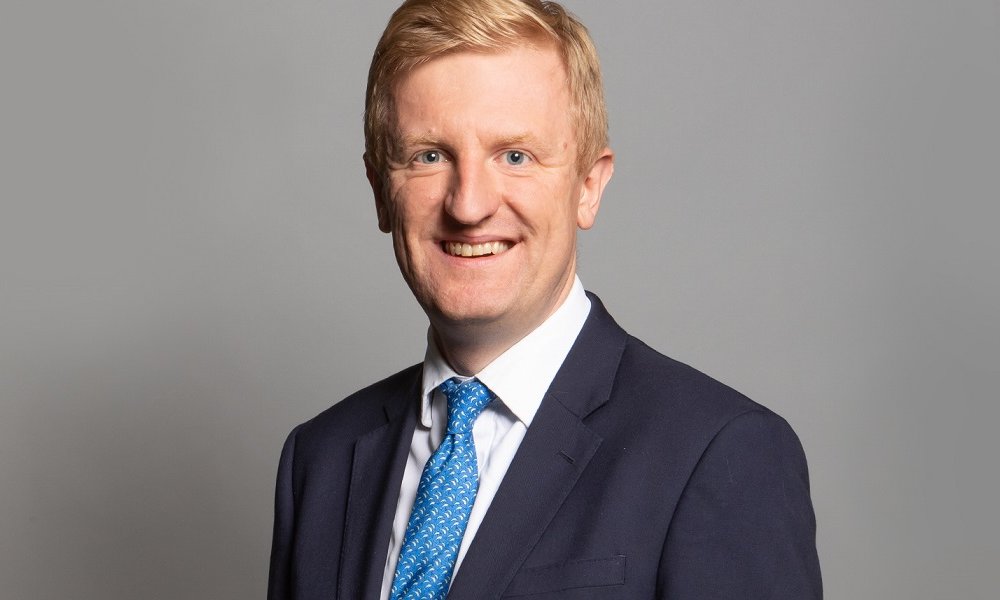
A social media sensation was already gathering traction by this point in the year. The Musée d’Orsay had employed an Instagrammer-in-residence to reinterpret classic artworks on the platform throughout 2020.
The innovative residency making the Musée d’Orsay an Instagram hit
Still, digital engagement was never going to be an essential strand of a museum’s work in 2020. Right?
Elsewhere, Arts Council England’s latest diversity report presented what Nicholas Serota labelled a “disappointing picture” and the Migration Museum relocated to Lewisham Shopping Centre in order to reach new audiences. Tate Modern also unveiled spectacular plans for a 20th birthday party.
The news continued to flow throughout the month as V&A Dundee sped to the one million visitor milestone, Jewish Museum London announced its intention to pursue a ‘new direction’ outside Arts Council England’s National Portfolio, and fashion proved hugely popular with visitors at V&A London once again.
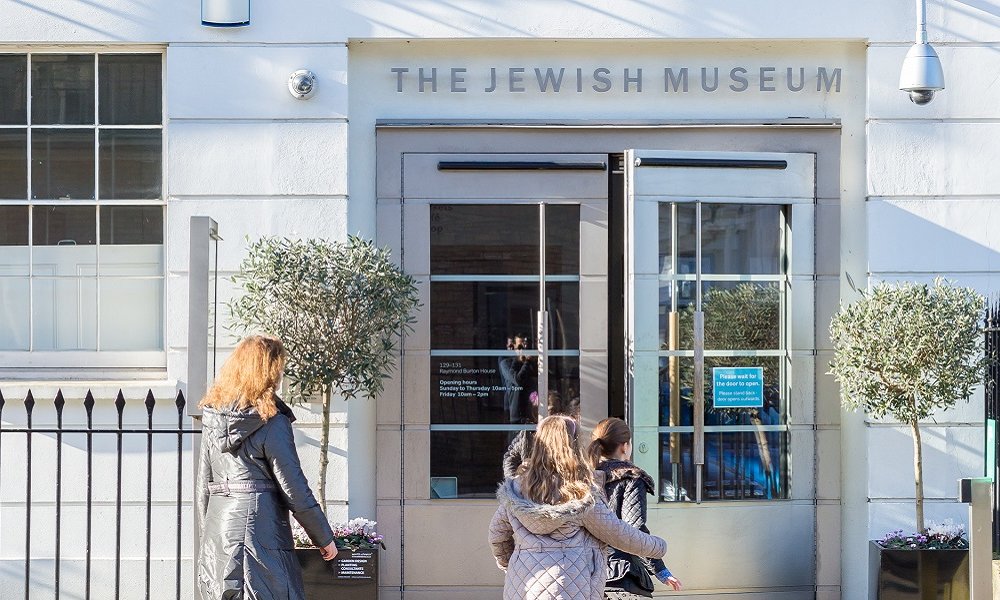
March
This fateful month saw everything change. Foreshadowing the inexplicable events that would follow, the Louvre surpassed its own visitor record – almost 1.1 million people attended its Leonardo da Vinci retrospective – before promptly closing its doors as fears surrounding Covid-19 grew.
The die was cast.
“Our doors may be closed…but we are still there for our visitors”
Birmingham Museums showed, not for the last time in 2020, that it was keen to get ahead of the curve; opening up its collections to global online audiences in March.
BBC Arts also unveiled a mini-season of programming dedicated to connecting locked down society with the nation’s cultural institutions.
April
Digital quickly became all. The BP Portrait Award was among the first staples of the cultural calendar to proceed virtually, while organisations including English Heritage, Historic England and Imperial War Museums rallied to support beleaguered schools in delivering history lessons.
After shedding a fusty image in favour of fun and games during the summer of 2019, cathedrals were once again showing their willingness to innovate – this time in response to a physical disconnect between themselves and their congregations.
Cathedrals innovate once again to survive – and thrive – during lockdown
The very best of the sector was in plain evidence as lockdown caused untold pain for people across the nation. The amount of outreach work developed on the hoof was incredible, with organisations like The Auckland Project feeding vulnerable families and Wellcome offering NHS workers respite amid the chaos.
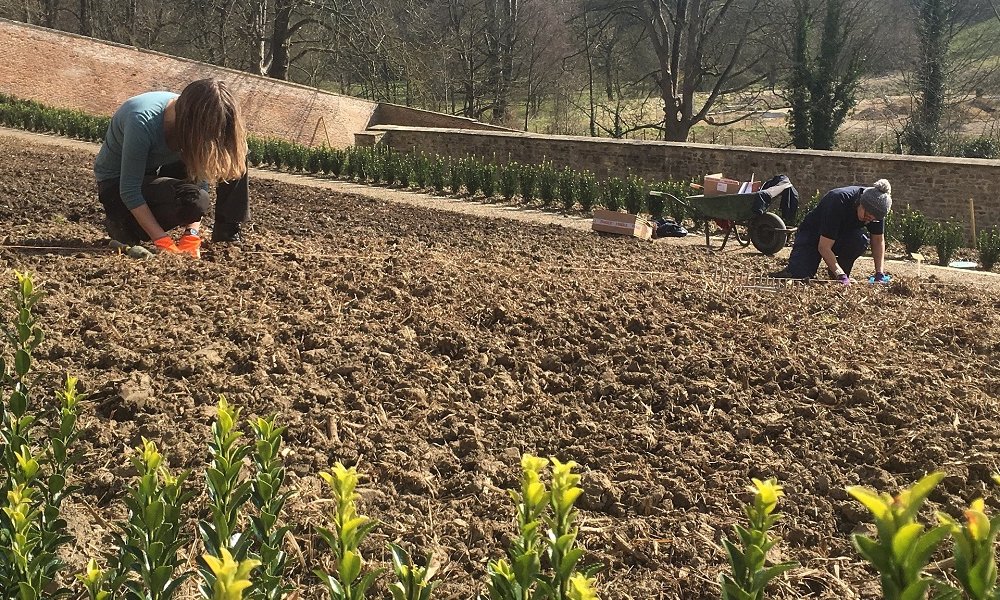
Even in the depths of despair, museums quickly adapted and returned to doing what they do best. Museum of London was one of the earliest to spring into action, beginning in April to collect relics of the pandemic for future exhibitions.
As a heavily furloughed public quickly got to grips with consuming online content, Hastings Contemporary was left “overwhelmed and delighted” when huge demand for its Robot Tours meant bookings had to be rationed for the most vulnerable members of society.
Hastings Contemporary ‘overwhelmed’ by interest in Robot Tours
For those still working, never-ending Zoom calls became the norm. Some jobs, however, required a whole other level of ingenuity to complete while wearing PJs.
SS Great Britain: How does museum conservation work continue from home?
Back on the environmental trail, Natural History Museum showed off its ambitious plans to turn its South Kensington gardens into a biodiversity hub. At a time when the nation was obsessed with any time outdoors, the announcement couldn’t have been better scheduled.
Some things that worked this year would probably never have been so popular at any other time. The decision by Kettle’s Yard, for instance, to launch a live feed of its empty gallery space may have bemused audiences in 2019. For 2020, this was quiet, contemplative bliss.
Kettle’s Yard takes Instagram inspiration for relaxing live stream
April also saw the announcement that Philip Long OBE, V&A Dundee’s inaugural director, would become the National Trust for Scotland’s new chief executive. Quite a moment to be taking on such a role.
May
Finally, after months of waiting, the ‘r’ word began popping up in May. REOPENING.
As governmental restrictions began to gradually uncoil across Europe, museums including the Rijksmuseum in the Netherlands and Guggenheim Museum Bilbao on the Spanish coast revealed plans to welcome visitors.
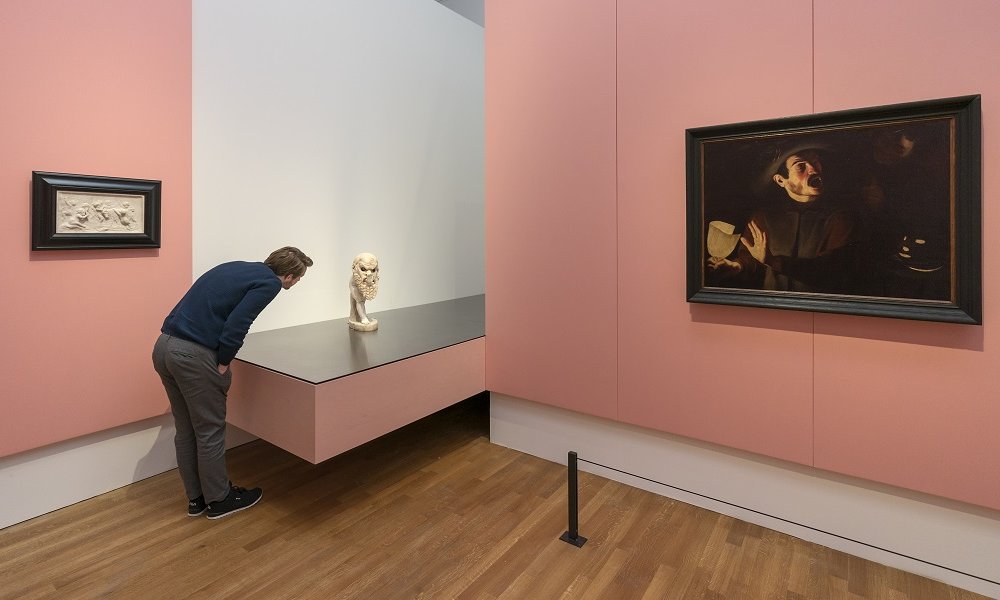
Soon it was happening in the UK, with the National Trust announcing mandatory timed ticketing would be integral to its plans for safely reopening its outdoor spaces.
Key appointments were rife in May. Neil Mendoza took his place at the head of a new Cultural Renewal taskforce, Wellcome revealed former Australian prime minister Julia Gillard was to become its next chair, and Tate confirmed Roland Rudd would succeed Lionel Barber on its Board.
Last but by no means least, Captain Tom Moore became the first honorary patron of Imperial War Museums.
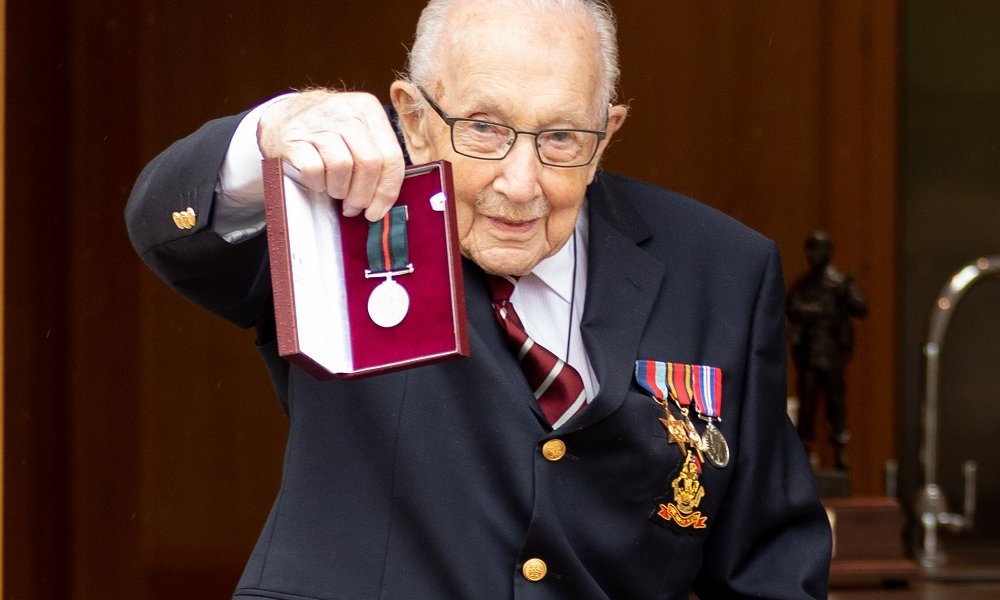
Just when the virtual tour had become something of a ubiquitous experience, the British Library blended the format with a retro video game. The result was an utter joy.
June
As European institutions continued to blaze a trail for Covid-secure reopening, UK museums were left to anxiously await permission to welcome the public – despite shops and other businesses being given the go ahead.
Shops and zoos set for relaunch as museums left in the dark over future
Despite all the setbacks, museums were once again stepping in to fill a void hewn by the pandemic. This time it was the V&A doing all it could to give frustrated festival-goers their Glastonbury fix after the iconic event was cancelled.
Most major 2020 openings had been indefinitely pushed back by this juncture, with the vast Academy Museum of Motion Pictures in Los Angeles probably most expensive project put on ice.
Other long-term infrastructure schemes were, however, marching on unperturbed. Plans were approved for a new Museum of London site and the National Portrait Gallery’s three-year closure for major redevelopment was set to continue on schedule.
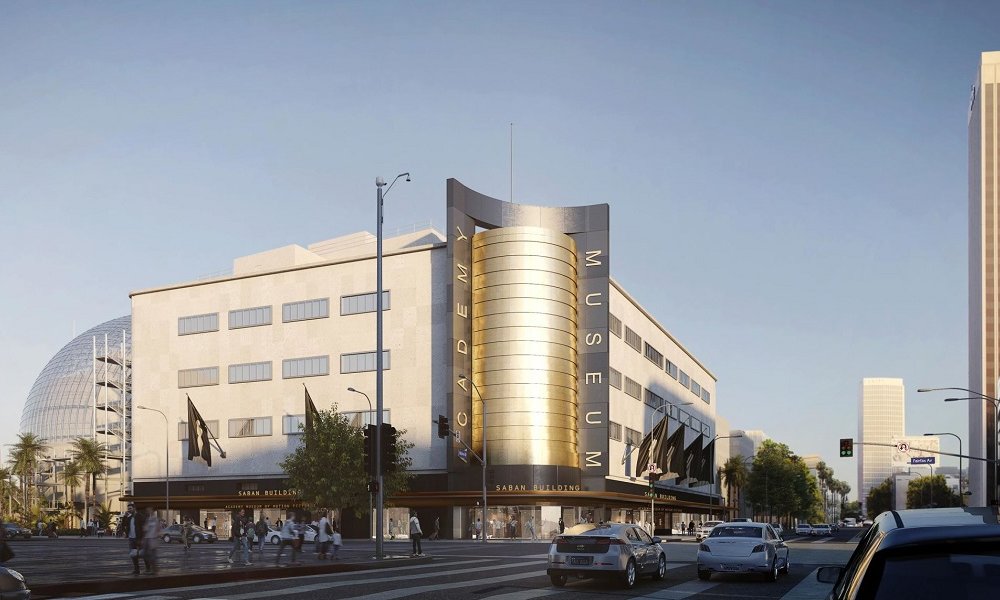
A few eyebrows were raised by one of the year’s more notable hires, as Dr Doug Gurr, former country manager of Amazon UK, was confirmed as Natural History Museum’s pick for director.
Amazon UK chief appointed as new Natural History Museum director
Even with all that having occurred, the biggest story of June was the continued groundswell of support for the Black Lives Matter movement – and the increasing focus of protests on the culture sector.
The toppling of Edward Colston’s statue into Bristol Harbour was just the start, with the heritage sector’s perceived complicity in perpetuating colonial ideologies and institutional racism under the microscope like never before.
How can museums decolonise?
After a year in which calls for decolinisation reached new heights, Dr Errol Francis discusses how this can be achieved in practice.
Museums + Heritage Autumn Series Podcast: Decolonisation, with Dr Errol Francis
July & August
Imperial War Museums became the first organisation of its kind to join the Stop Hate for Profit campaign this summer. A boycott of Facebook ensued and the institution drew plaudits for taking a stance on the spread of disinformation and hate speech online.
The first UK museum has officially joined the Facebook boycott. Should others follow?
A major step forward was taken for accessibility, too, with a landmark policy stipulating that all new public buildings will be required to install Changing Places facilities.
July was the month when announcing reopening plans became an art form of its own. Creative videos were rife, and some museum’s efforts still deserve another watch.
Reopening videos and tackling Tik Tok: the sector’s pandemic multimedia learning curve
Once sites had reopened, the notion of what constitutes an exhibition became increasingly malleable. A sell-out drive thru show in the Netherlands and a London venue that provided the chance to gaze at an exhibition without having to go indoors proved hugely popular in the era of socially distanced recreation.
Similarly forced to embrace a new approach, the 2020 Turner Prize was reimagined rather than cancelled. The ten artists sharing bursaries were announced in the summer.
Another innovation that probably wouldn’t have received as much attention in any other year was a series of audio tours curated by security staff. Having had the galleries to themselves for several months, nobody was better placed!
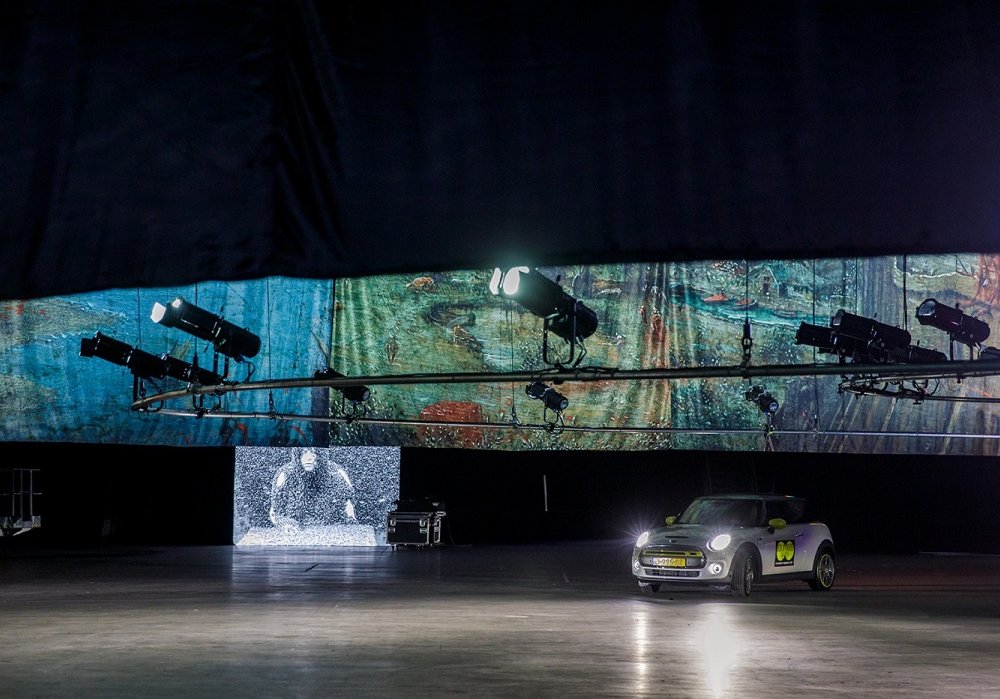
Having spent time carefully considering its substance, arts diversity charity Culture& launched a Black Lives Matter Charter in July.
Debates around repatriation, restitution and reinterpretation continue to blaze on now, and 2020 may well be looked on as a key year in a struggle that snakes back centuries.
Black Lives Matter, Benin Bronzes and Britishness: how can UK museums decolonise?
September
Despite tuxedos having been usurped by jogging bottoms for many of the 4,300 viewers, the first ever virtual Museums + Heritage Awards celebrated the sector’s achievements with its customary gusto in September.
Winners announced at the first ever virtual Museums + Heritage Awards 2020
The month also saw several notable appointments made.
Dr Anjana Khatwa joined Wessex Museums to help boost engagement with underserved audiences and, in a news story that proved one of our most shared of the year, Birmingham Museums Trust announced Sara Wajid and Zak Mensah would be taking on a job share as joint CEOs.
“The sector needs to diversify from the top if there is to be a real shift in how #museums operate and how their collections are presented”
New era begins at @BM_AG as #Birmingham Museums Trust appoints @waji35 @zakmensah as joint CEOs. https://t.co/M2YQcVknqR— Museums + Heritage Advisor (@MandHAdvisor) September 14, 2020
The National Trust releasing a document exploring historic links to slavery at 93 of its properties proved one of the most-discussed publications of 2020, with conversations regarding how the heritage sector should deal with problematic practices of the past once again becoming mainstream news.
The Scottish Government sought to firmly position itself in the context of this debate, sponsoring an independent expert group make recommendations on how museums can better represent the “mistakes and atrocities of the past”.
October
Art Fund Museum of the Year was the latest annual event to be conducted outside its usual format, with five winners splitting an expanded £200,000 prize pot this time around – all of which was announced live on The One Show.
If ever a turn of events aptly summed up the tumult of 2020 it was that, a matter of days after being confirmed as one of these five successful institutions, Science Museum announced it was reviewing substantial job cuts in order to stem expected losses of around £23 million.
Art Fund Museum of the Year winner braced for job cuts as £23m losses predicted
Multi-million pound deficits were being announced by museums and heritage attractions on an almost daily basis by the autumn.
Social media giant Facebook stepped in to support Bletchley Park with a £1 million donation, citing the Buckinghamshire site’s work in “laying the foundations of modern computer science” as the reason for its concern.

Only a few weeks after the Scottish Government unveiled its aforementioned scheme to assess the portrayal of colonial pasts in the nation’s museums, Sir Geoff Palmer OBE was appointed chair of a steering group leading this work.
Palmer to chair independent review of Scotland’s colonial past in museum collections
November & December
One of the more intriguing appointments of 2020 saw Luton Council hire its first ever ‘heritage enabler’ to boost community engagement with the area’s cultural offer. The experimental role has been fully funded by National Lottery Heritage Fund.
National Lottery funding allows Luton Council to appoint first ever ‘heritage enabler’
In what seemed like another positive step in raising the profile of accessibility issues, November saw the Tower of London’s New Armouries Building become the oldest public site registered on the Changing Places UK Toilet Map.
Another landmark achievement drew near this December, with Kids in Museums having edged towards 1,000 signatories to its Manifesto. 2021 looks set to be yet another very exciting year for the organisation.
Back at its innovative best, Birmingham Museum & Art Gallery ended a year of digital dynamism by becoming the first official museum partner of online curatorial game Occupy White Walls – a move which has already opened up the site and its collection to a new raft of global fans.
Innovative online game partnership allows Birmingham Museums to reach new, global audiences
Rounding of a very trying year, the pivotal role Christmas shoppers could play in supporting museums – whether or not they were open to the public – became a key priority.
The #ShopMuseums and #MuseumShopSunday campaigns sought to unite the sector in promoting the offerings of museum shops, with organisations such as The Piece Hall in Halifax doing all they could to support the independent businesses renting commercial spaces.
Piece Hall blends in-store and online Christmas shopping to protect independent businesses
News from Exeter’s Royal Albert Memorial Museum is, however, perhaps the best way to end a look back at 2020. This month it announced pre-booked tickets were no longer mandatory – breaking what had become uniformly implemented Covid-secure practice across the sector.
While only a small change, it is nevertheless a symbolic leap towards a normalcy which many will have all but forgotten. This serves as a timely reminder that brighter times – free from one-way systems and sanitisation – will be a reality once more.

